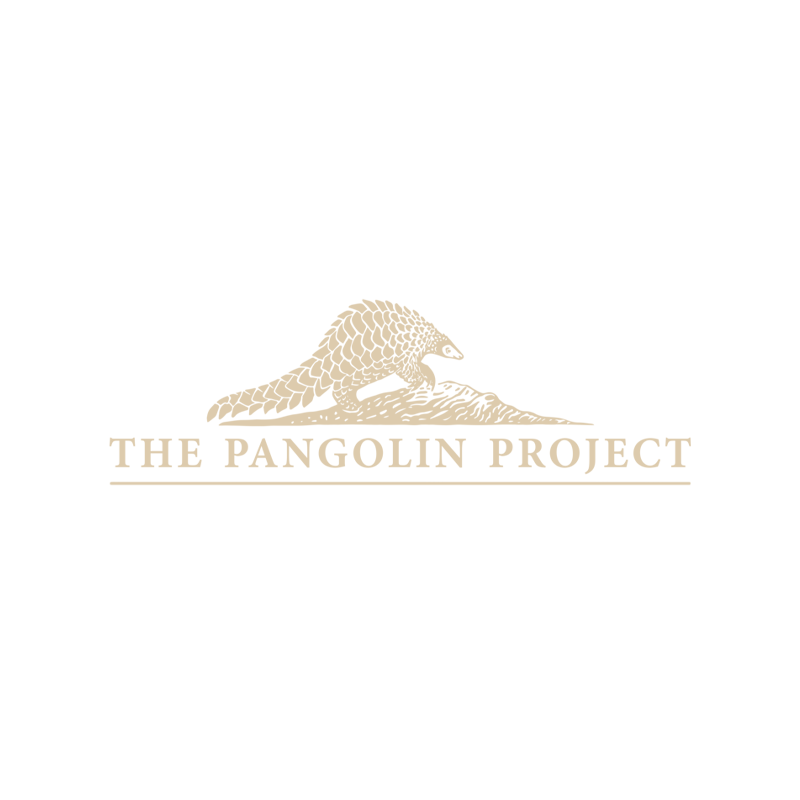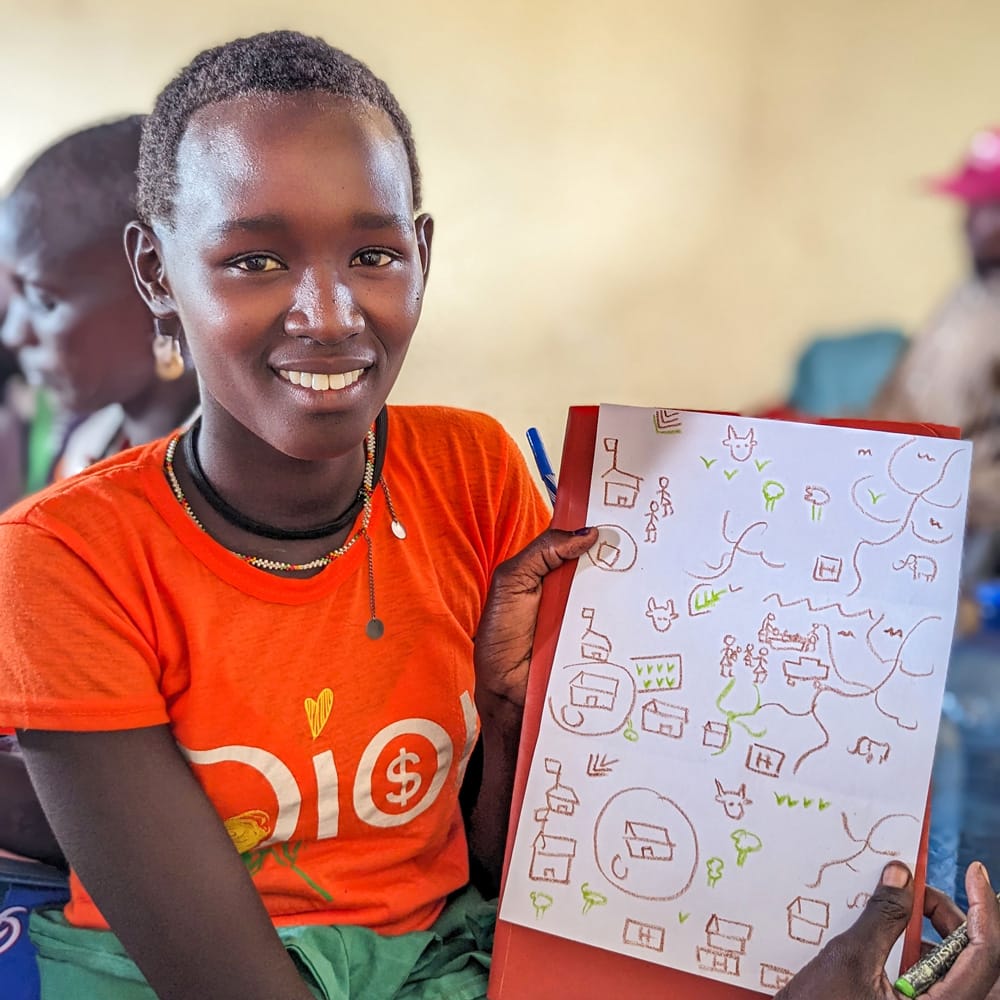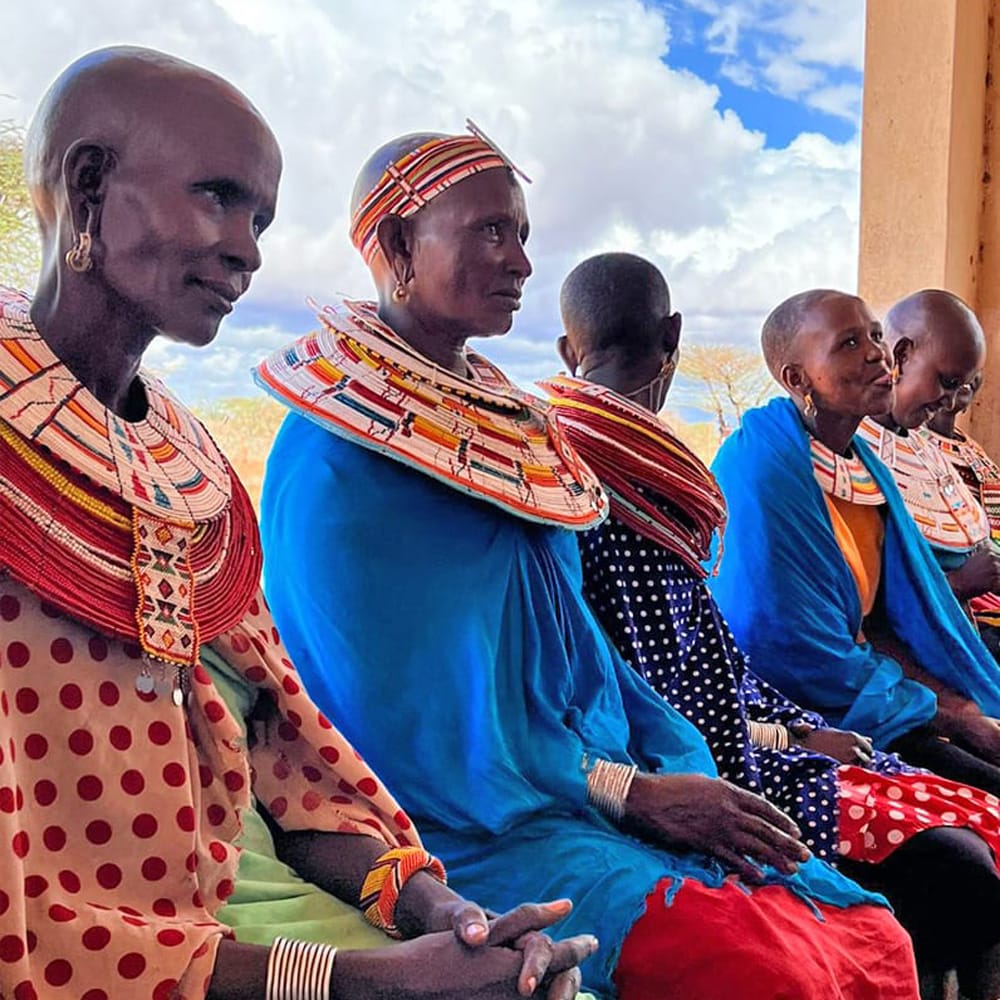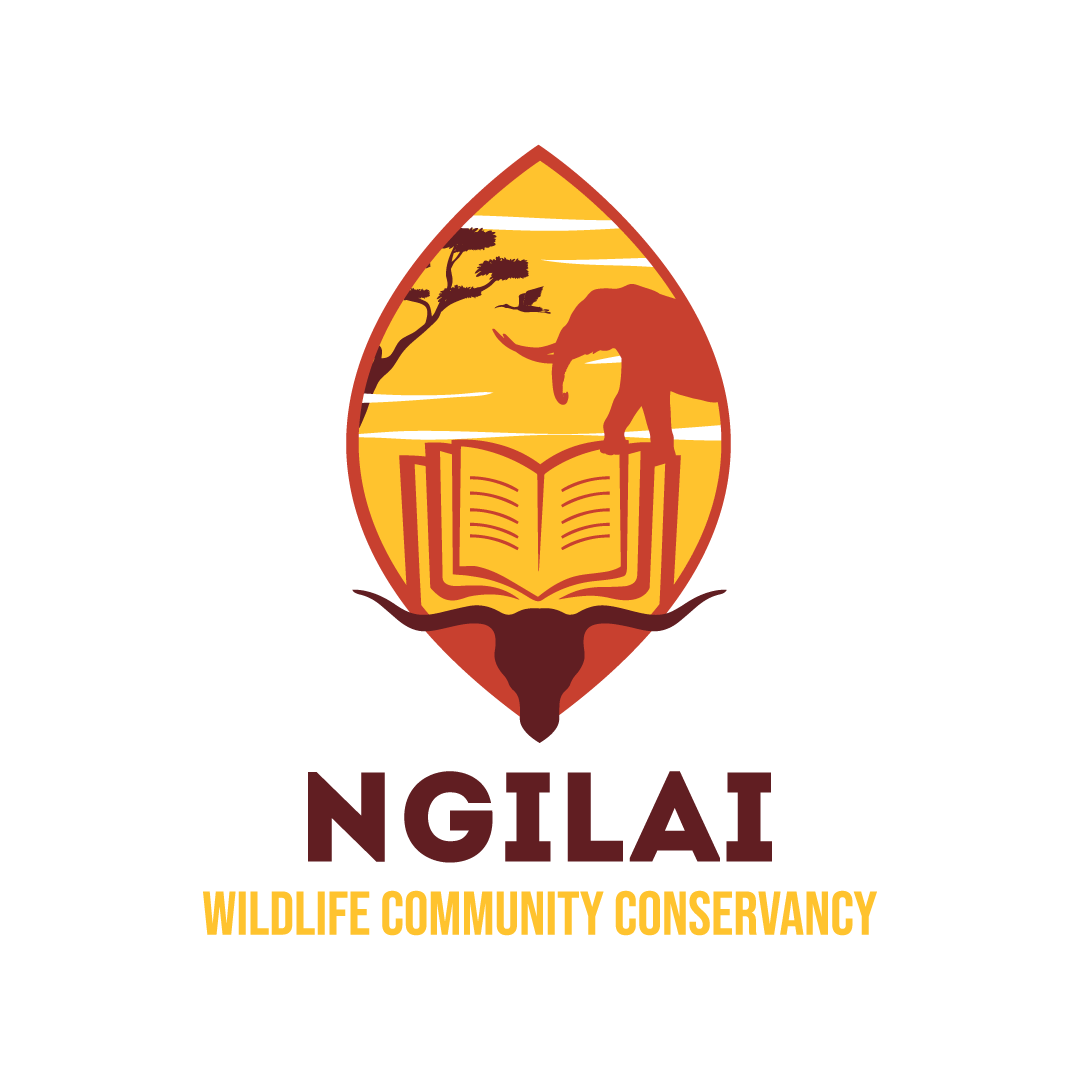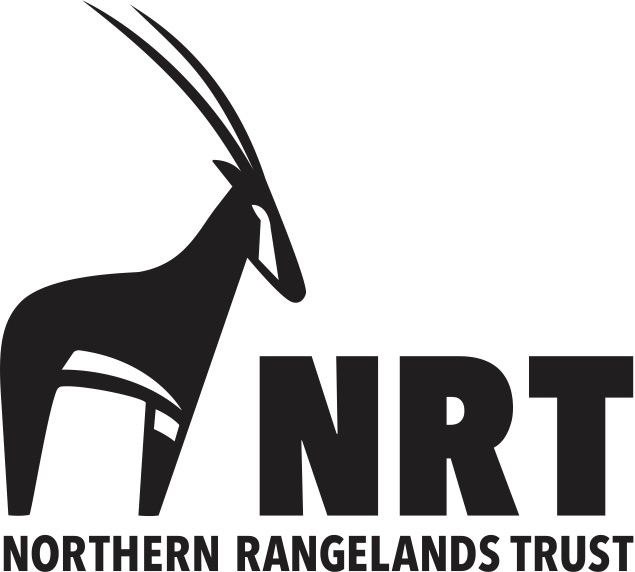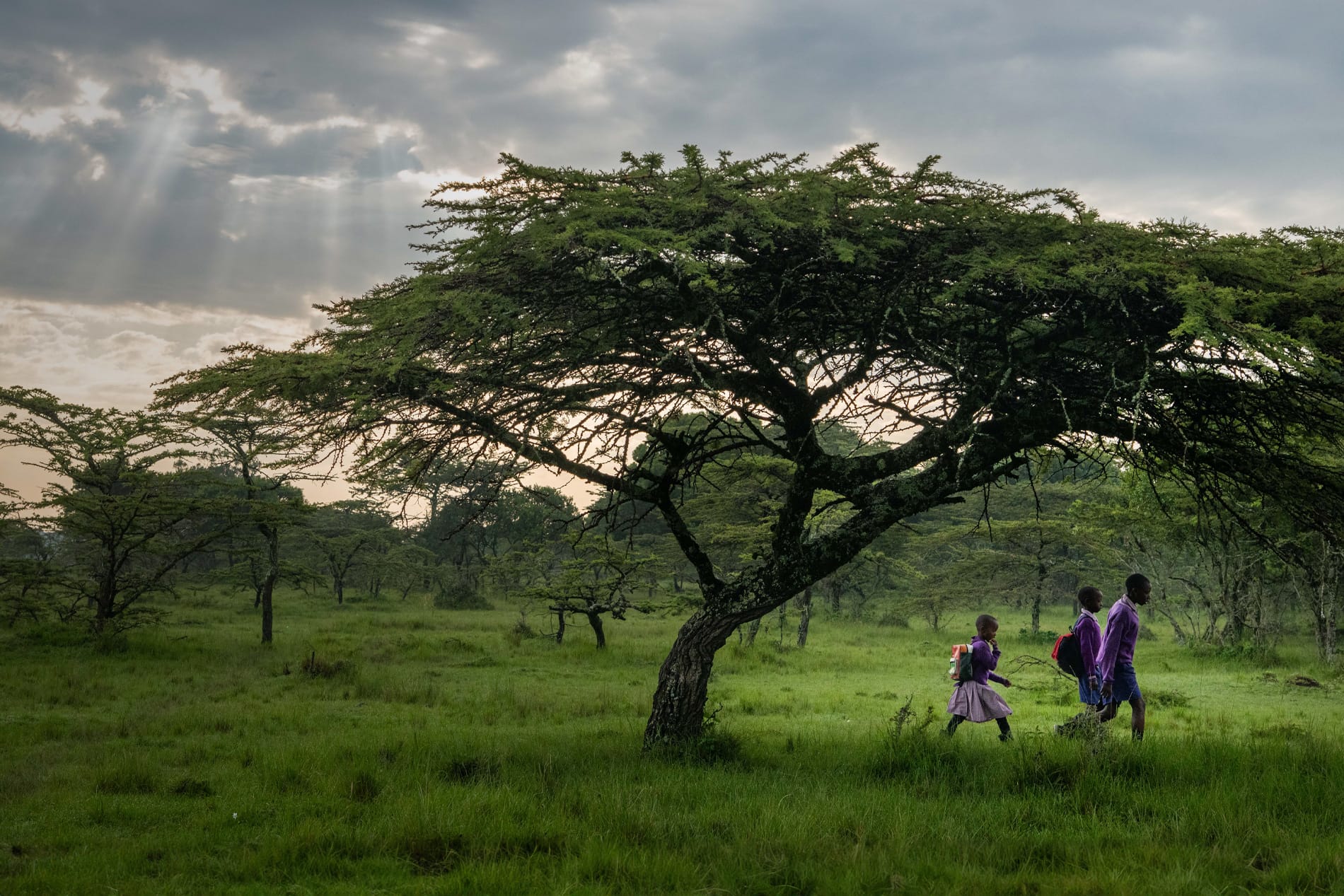
Kenya’s Nyekweri Ecosystem
In 2024, Legado launched a partnership with The Pangolin Project to support Indigenous stewardship of the larger Nyekweri ecosystem in Narok County in Southwest Kenya.
The Nyekweri ecosystem and the adjacent Maasai Mara Reserve area are a refuge for wildlife that have been stewarded by the Maasai people and other Indigenous groups for centuries. Nyekweri is also a key water source for the Migori River basin. These life-sustaining forests and rangelands are home to dozens of Africa’s most iconic wildlife, including wildebeest, lions, African elephants, zebras, and many more.
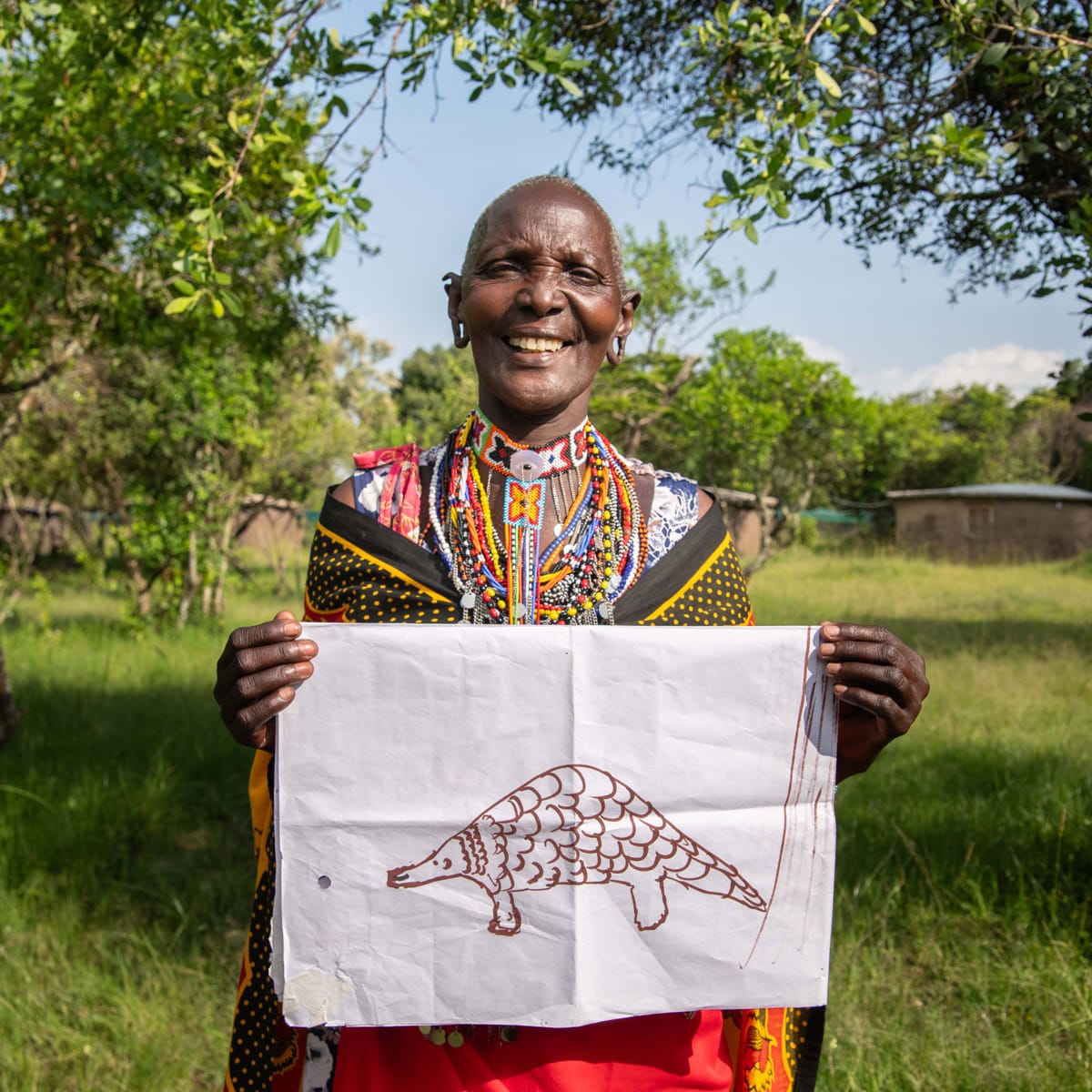
Kurito Tatei from Saparingo Village holds up a picture of a pangolin at a community workshop in the Saparingo area | Roshni Lodhia/Legado
Forests and grasslands meet at the edge of Maasai Mara Reserve
A forest home for giant pangolins
But the connectivity of this ecosystem, on which pangolins and other wildlife depend, is at risk. More than 80% of the forests that sustain a diversity of flora and fauna have been cleared in the last 20 years to make space for agriculture and livestock grazing. Pangolins are at risk of extinction from deforestation, as well as from poachers. They remain one of the most illegally hunted animals in the world.
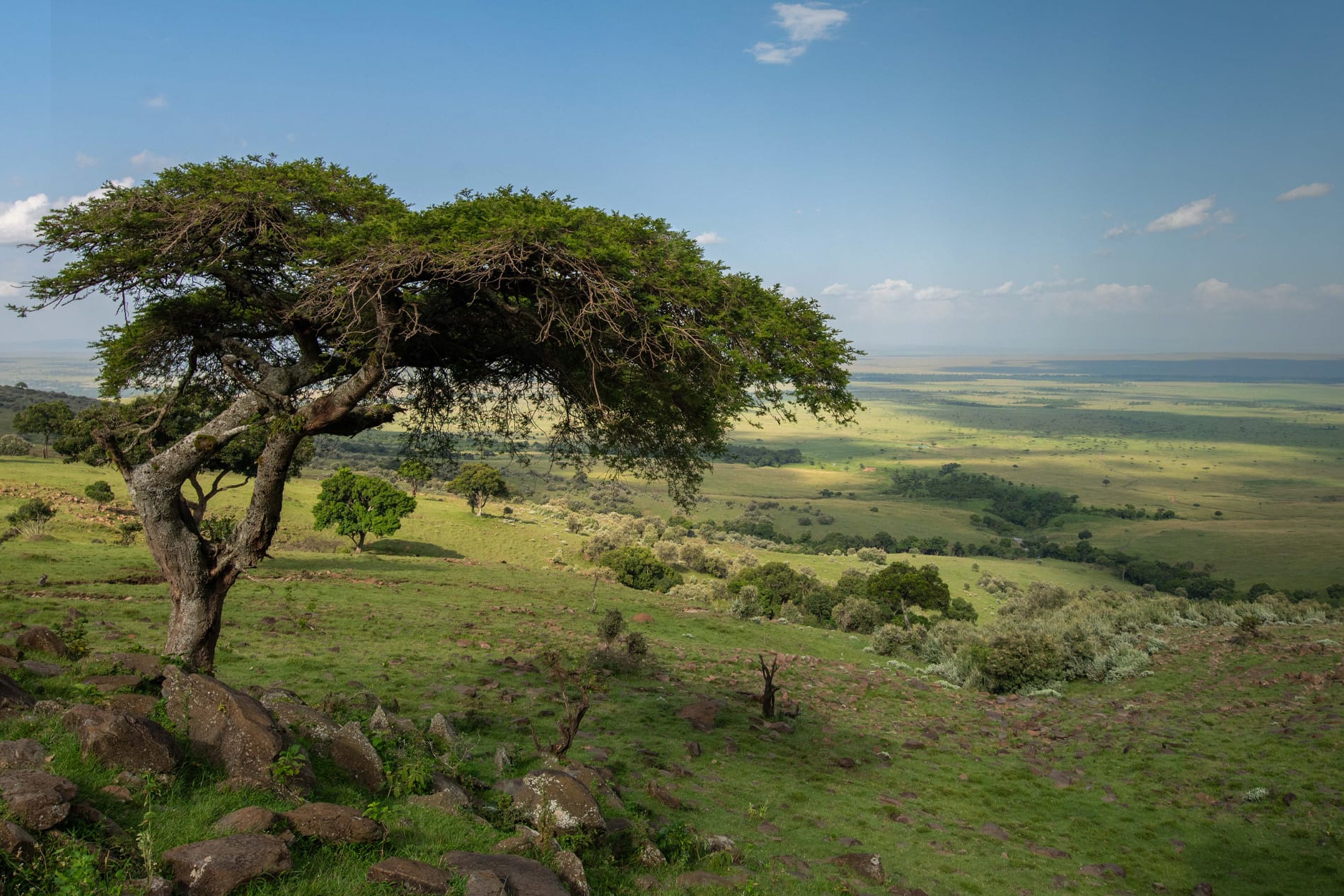
Legado is supporting The Pangolin Project to use a Thriving Futures Model in partnership with Maasi landowners. These Indigenous stewards will create a holistic Landscape Management Plan that preserves the biodiversity of the forest and rangelands and furthers their well-being.
360° Community-Led Change
Through this partnership, Legado is supporting 20,000 people to create Legacy Plans that represent their collective vision for their Thriving Future.
After completing their Legacy Plans, the community members will work together with the support of The Pangolin Project toward their community-designed solutions to preserve their forests and rangelands in tandem with supporting their health, education, governance, and culture.
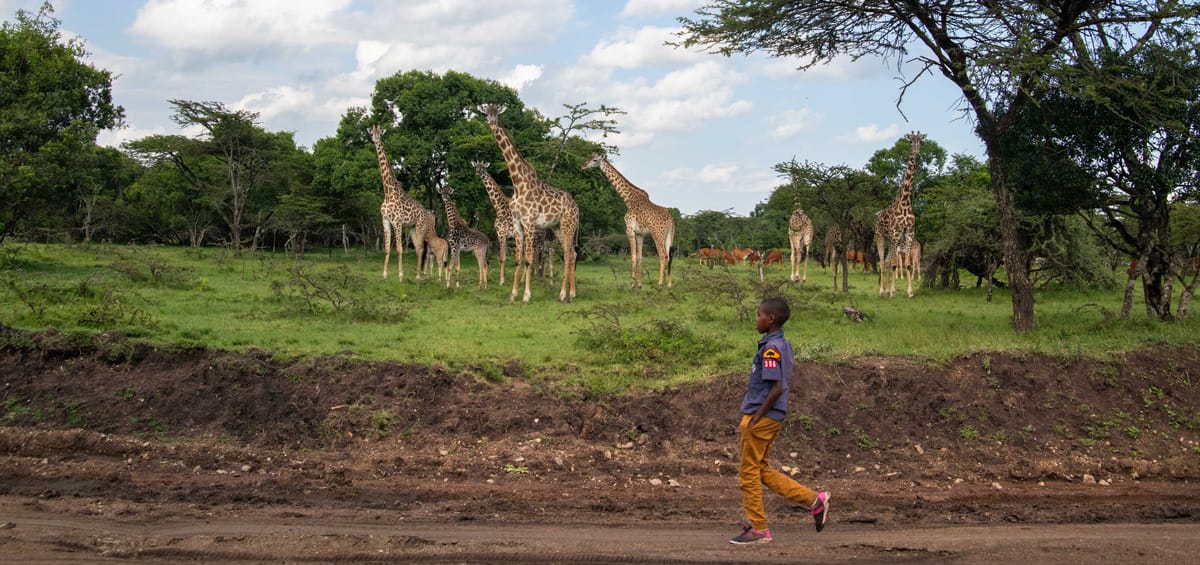
Creating Thriving Futures
Nyekweri’s Legacy Plan will then set the template for The Pangolin Project and other partners to support Nyekweri community members as they seek to conserve and restore 10,000 hectares of forest and rangelands where people, livestock, and pangolins can thrive.
The ultimate outcome is a Thriving Future in Nyekweri: a thriving ecosystem with a thriving people within it, where community champions have the resources they need to develop solutions to community challenges.
Our Partner in Southwest Kenya
